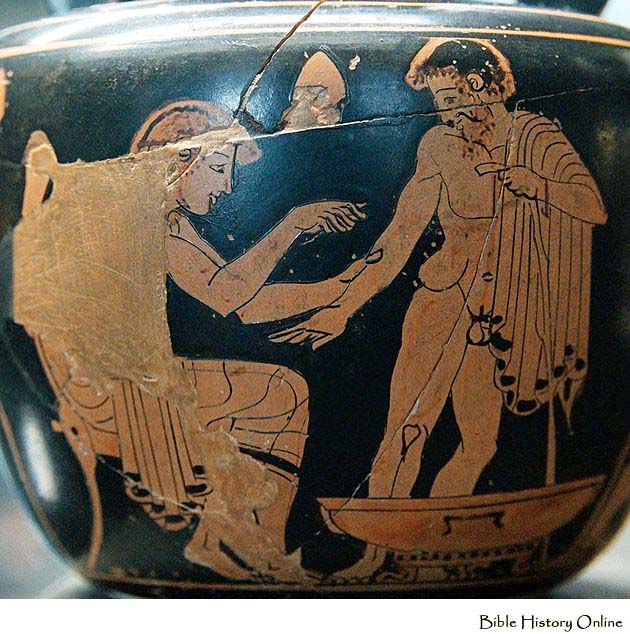The other day a classmate and I had a long talk about the Hippocratic Oath (read it here). She is a pro-choice relativist, but she will take the Oath because she maintains that paragraphs like
...I will neither give a deadly drug to anybody if asked for it, nor will I make a suggestion to this effect. Similarly I will not give to a woman an abortive remedy. In purity and holiness I will guard my life and my art.
I will not use the knife, not even on sufferers from stone, but will withdraw in favor of such men as are engaged in this work...
...Whatever houses I may visit, I will come for the benefit of the sick, remaining free of all intentional injustice, of all mischief and in particular of sexual relations with both female and male persons, be they free or slaves.are literally binding.) She maintained that she understands the Oath and swears by it, while others (presumably like me) think they know what it means and take it ignorantly but pleased, bending it to their agendas. Taking the Oath is an appeasement to both sides.
What I may see or hear in the course of the treatment or even outside of the treatment in regard to the life of men, which on no account one must spread abroad, I will keep to myself holding such things shameful to be spoken about...
The only study of the Oath I've had is Leon Kass' work and reading other Hippocratic works (his medicinal treatises). My classmates' position came out of lots of recent scholarship (i.e. 1980s, around Kass' time), and it makes up the body of the official presentation on the Oath to the first years.
My response to her was: why are you so attached to this Oath? Who cares about Hippocrates, or his culture (about which we obviously don't know everything, about which people disagree, and which you rightly point out is so different from ours)? Why shouldn't we just swear what we mean? On graduation day, you can swear what you told me you think the Oath means:
I will do no harm.(Which isn't in the Oath anyway, it's in the Epidemics and in later European medical humanities. Stop being so Western-culturist.) Maybe you will also add some of the other things you told me:
I will never allow my personal beliefs to get in the way of what a patient wants. I will never indoctrinate anyone. I give them all the information and options and allow them to make a free choice, for the contrary is absolutely abominable (although good is relative).
To God and all men, I profess that I will fulfill according to my ability and judgment this oath and this covenant:
I will improve or palliate the condition of the sick, treating each as a whole human person for their benefit [because beneficence is primary] according to my ability and judgment. I will do no intentional harm [because non-maleficence is secondary].I'm obviously not married to the Hippocratic Oath. It's fine, but it really doesn't capture everything. It was perpetuated for so long (through the Middle Ages) in Catholic cultures and their offshoots (including Islamic and Protestant cultures) because it was a very close approximation of Catholic teaching. Perfect? No! Misused after the Reformation in Germany? Yes!
I will actually not give a deadly drug to anyone, nor will I make a suggestion to this effect. Similarly I will actually not give to a sexually active woman an abortifacient (including hormonal birth control, IUDs, emergency contraception, or RU-486) or perform an abortion on a pregnant mother. Further I will actually not prescribe any contraceptive.
In purity and holiness I will live and practice. I will not exceed my competence. Wherever I work, I will work for the benefit of the sick, remaining free of all intentional injustice. What I may see or hear about the lives of patients I will keep to myself, unless there is danger to the patient or to others or unless summoned by sufficient legal authority. I will honor my teachers and those with whom I work, and will treat the poor with special charity.
If I fulfill this oath and do not violate it, may it be granted to me to use life and this art unto my salvation and the salvation of others. If I transgress it and swear falsely, may You, O Lord, and my fellow men have mercy on me and forgive me.
The relativists are bending over to interpret it, the Christian doesn't think the literal interpretation is immaculate either...so who cares about Hippocrates? It's better that we be frank and say what we mean.

No comments:
Post a Comment